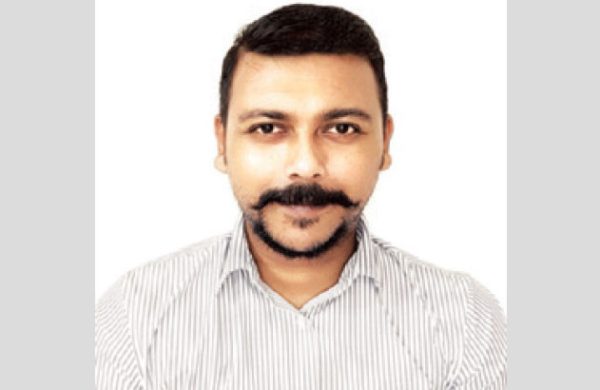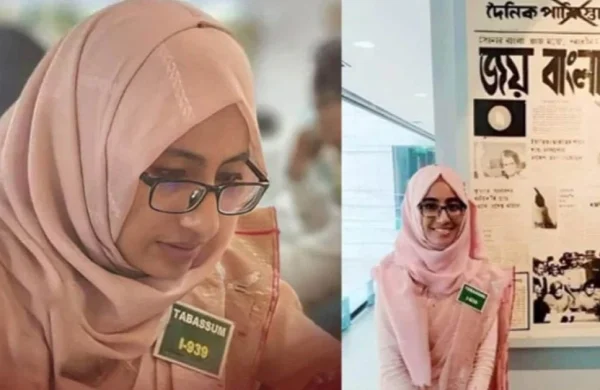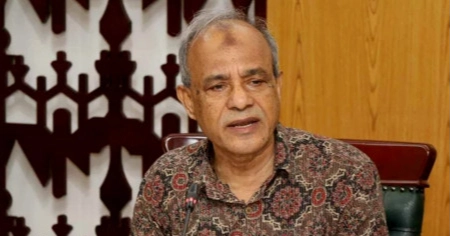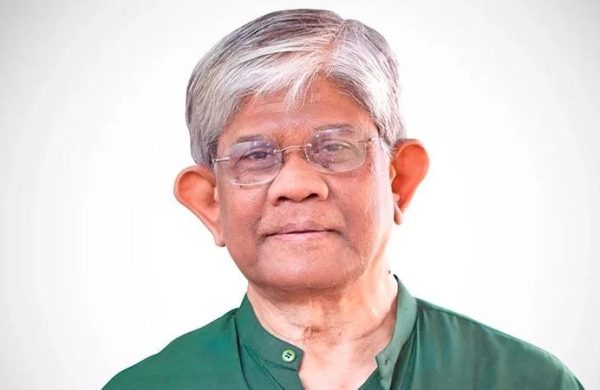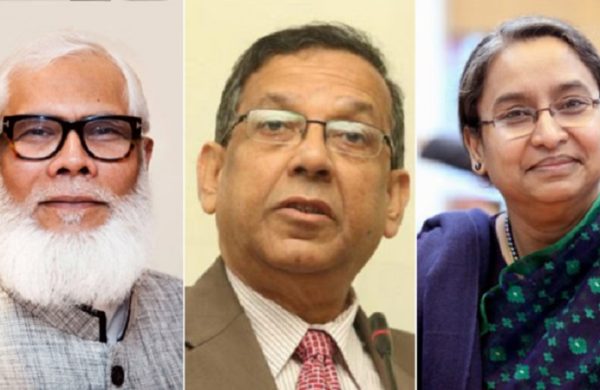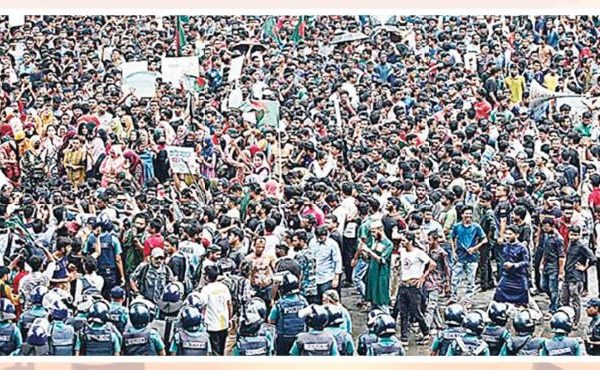2024 mass uprising must bear fruit
- Update Time : Monday, September 9, 2024
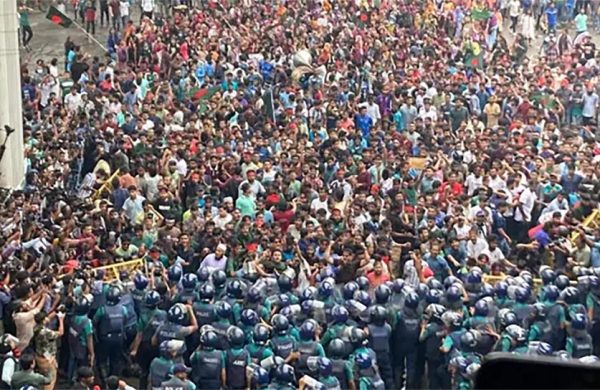
–DR SHAHZAD FIROZ–
The 2024 Mass Movement was driven by a demand for fairness and justice. It began with widespread opposition to the government’s policy of reserving jobs for the grandchildren of those who fought in the Liberation War – a policy widely perceived as a tactic to secure loyalty to the ruling regime under the guise of honoring freedom fighters. This policy excluded more qualified candidates, igniting widespread outrage.
The slogan ‘quota na medha, medha medha,’ which translates to ‘quota or merit, merit-merit,’ captured a broader call for equal opportunity and resonated deeply with the public. This demand for fairness extended beyond job quotas, challenging the entrenched inequalities that perpetuate systemic injustice in the country.
As the movement evolved, its focus broadened beyond job quotas to challenge state violence directly. The slogan ‘amar bhai morlo keno, shoirachar jobab dey’ (why did my brother die? Autocrat, answer this!) echoed through the streets as thousands rallied against the regime’s repression. The people’s demand for justice intensified, eventually toppling the regime and forcing Sheikh Hasina to flee. With a new interim government in place, Bangladesh now faces a decisive moment.
Unlike the uprisings of 1969 and 1990, the 2024 movement wasn’t led by traditional political parties or their student wings. It was initiated and led by students and soon evolved into a broad coalition of workers, rickshaw-pullers, shopkeepers, professionals, and marginalized communities consisting of ordinary people whose anger had simmered for years over the erosion of democracy, suppression of dissent, sham elections, and worsening economic hardship.
Bangladesh’s history offers a sobering reminder that revolutionary momentum, no matter how promising, is often hijacked, leaving the people’s aspirations tragically unfulfilled. The fall of Ayub Khan in 1969, the Independence in 1971, and the ousting of General Ershad in 1990 all shared a common outcome: the swift replacement of promised change with the oppressive power structures, merely dressed in new rhetoric. Recent global movements like the Arab Spring and Eastern Europe’s color revolutions provide similar warnings. Despite early victories, these movements often faltered as they struggled to sustain momentum and translate popular support into lasting change. Egypt, once a symbol of the Arab Spring, now languishes under renewed military rule – a stark reminder of how quickly revolutionary gains can be erased.
To prevent this uprising from being hijacked by the dominant power structures that have exploited the masses for decades, we must confront key questions: what to reform, how to reform, and who will benefit. Calls for ‘repair and reform of the state’ are empty without a clear vision. Unlike the uprisings of 1969 and 1990, which saw political factions unite around specific demands like the ‘Egaro Dofa’ (11 points) and ‘Dosh Dofa’ (10 points) for socio-political change, the 2024 movement, while unified in its goal to remove the autocratic regime, lacks consensus on broader socio-economic reforms to address systemic issues.
Political groups, from conservatives to liberals, who fought against the autocratic regime together, each have their own ideas on what reforms should be made. These socio-cultural, economic, and political factions will push to shape reforms to suit their interests. The critical challenge lies in ensuring that the ‘voiceless majority’ is represented and that reforms address the root causes of people’s suffering.
There seems to be a consensus on a ‘new political settlement,’ focusing on rebuilding administrative, judicial, and financial institutions to establish democratic processes where free speech is ensured, people are treated fairly, and institutions remain transparent, corruption-free, and free from the influence of vested interest groups. However, in a deeply class-based society, we must ask: whose interests will truly be preserved? Will these reforms address wealth disparity? Will the economic model continue to be driven by neoliberal policies that serve corporate and multinational interests over the people? Will informal sector workers be protected, or will laborers remain denied trade union rights in EPZs?
Any political settlement that overlooks the economic structures fueling inequality is bound to fail. If we cannot address deep-rooted exploitation, political reforms would be mere window dressing for a rotting system. Over the last 15 years, billions have been stolen by the regime from every sector – from banking to energy. Under the pretext of development, the previous government borrowed billions for large projects, orchestrating looting and draining public wealth with the ruling clique.
While GDP growth is impressive in numbers, the beneficiaries are a select few. Due to skewed wealth distribution, development has failed to reach the majority. While new millionaires have emerged, workers’ wages have stagnated for 29 months, with inflation deepening their poverty, according to the Bangladesh Bureau of Statistics. Wealth disparity has grown, with the wealthiest 10% of the population now controlling 41% of the country’s total income, while the bottom 10% receives just 1.31%. Additionally, less than 1% of bank accounts control 43.35% of total deposits, highlighting the concentration of wealth, based on data from Wealth-X and Bangladesh Bank. This extreme disparity isn’t just a statistic – it’s a crime against the people, perpetrated by the ruling class.
Neoliberal policies have deepened inequality, weakened public services, and further marginalized those already disadvantaged. Any new political arrangement will be meaningless if it doesn’t secure the livelihoods of those who have suffered under this regime. The idea of ‘reform’ must include addressing the root cause: the economic structures that support autocracy, enable the looting of public resources, and serve only the ruling class must be dismantled. Without dismantling these exploitative systems, any political reform will be unsustainable. Reforms must be built on a foundation of fairness and justice.
Empty rhetoric of reform will further alienate those who have suffered most under this structure. Addressing inequality demands a fundamental overhaul of the systems that perpetuate it. For instance, the initial focus on meritocracy during the quota movement reflected a desire for fairness, but in a society with unequal access to education and resources, merit-based systems often favor the wealthy over marginalized groups. Reforming the country demands concrete steps to dismantle the structural barriers responsible for inequalities and create equal opportunities for all while protecting the most vulnerable.
The 2024 Mass Movement has unleashed new potential for change. The decisions made in the coming days will determine whether Bangladesh can finally break free from the cycle of autocracy and exploitation or if it will once again be dominated by the governing elite. Only through radical, uncompromising reforms that allow the marginalized majority to reclaim their stake can we build a just society.
The writer is a teacher at the Department of Political Science and Sociology at North South University



